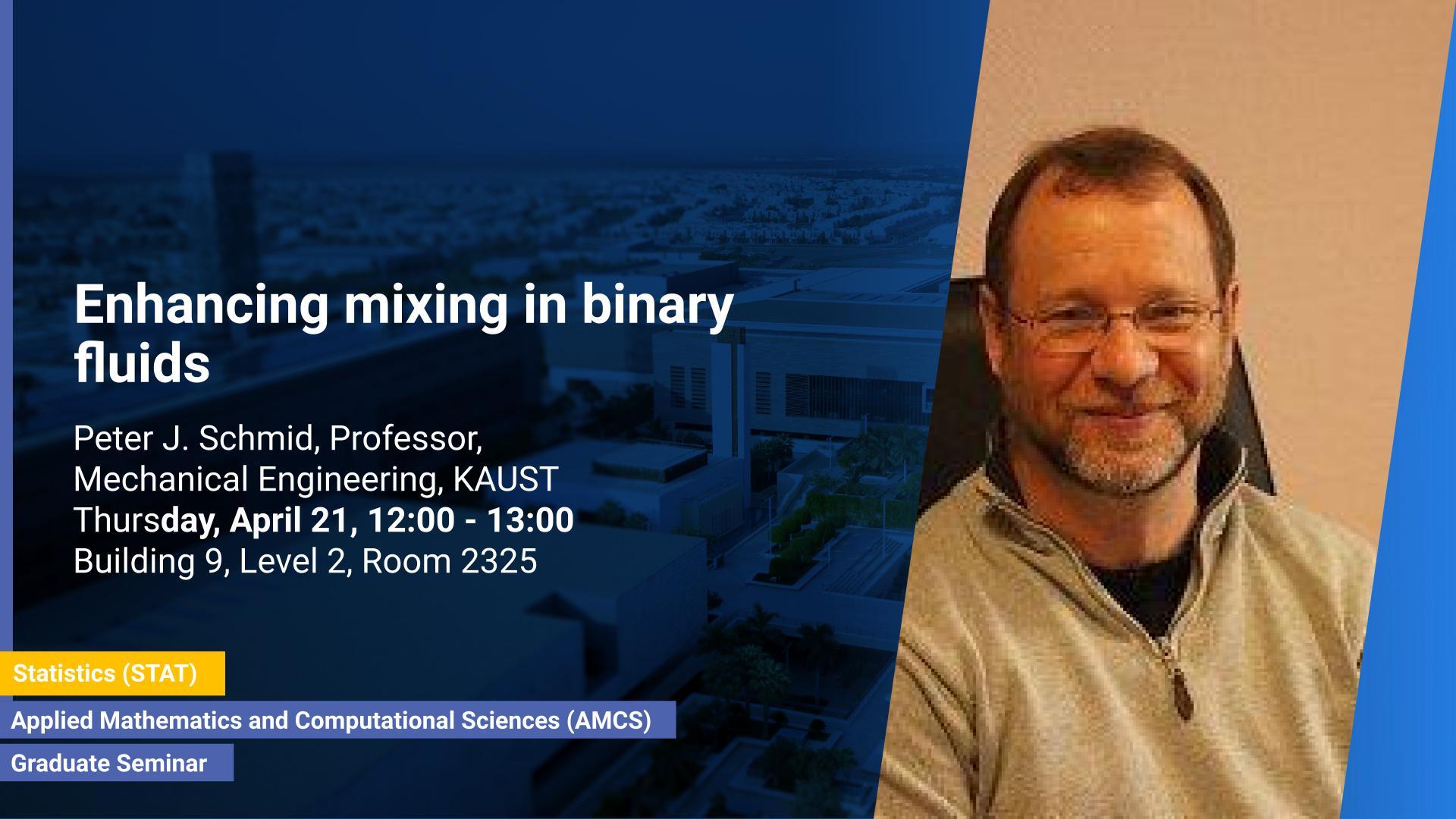Abstract
Mixing is a key process in a wide variety of technological applications. Pharmaceuticals, consumer products, and oil & gas derivatives, among many other products, rely on an energy-efficient, robust and effective mixing process. We will formulate the mixing process as a PDE-constrained optimization problem using special norms that concentrate on the mixedness of a passive scalar transported by nonlinear governing equations. Both a stirring protocol along a given path and the stirrers' cross-sectional shape will be optimized by a direct-adjoint technique to improve the mix-norm over a given time horizon and within a given energy budget. Significant improvements can be reported for non-intuitive and un-orthodox stirring strategie
Brief Biography
Peter Schmid joined the Mechanical Engineering department at KAUST in October 2021, after holding positions at the University of Washington, the French National Research Agency (CNRS), the Ecole Polytechnique and Imperial College London. He received his Engineer's Degree in Aerospace Engineering from the Technical University of Munich, and his Ph.D. in Mathematics from MIT. Hisresearch interests are in computational fluid dynamics, with a focus on hydrodynamic stability theory, flow control, model reduction and data-driven decomposition techniques.
